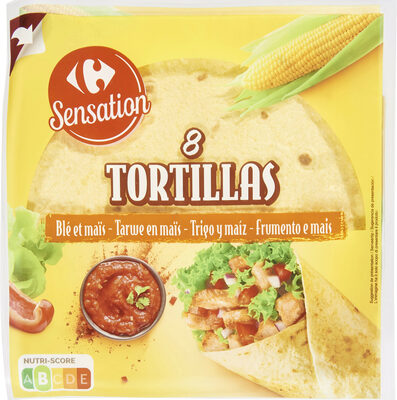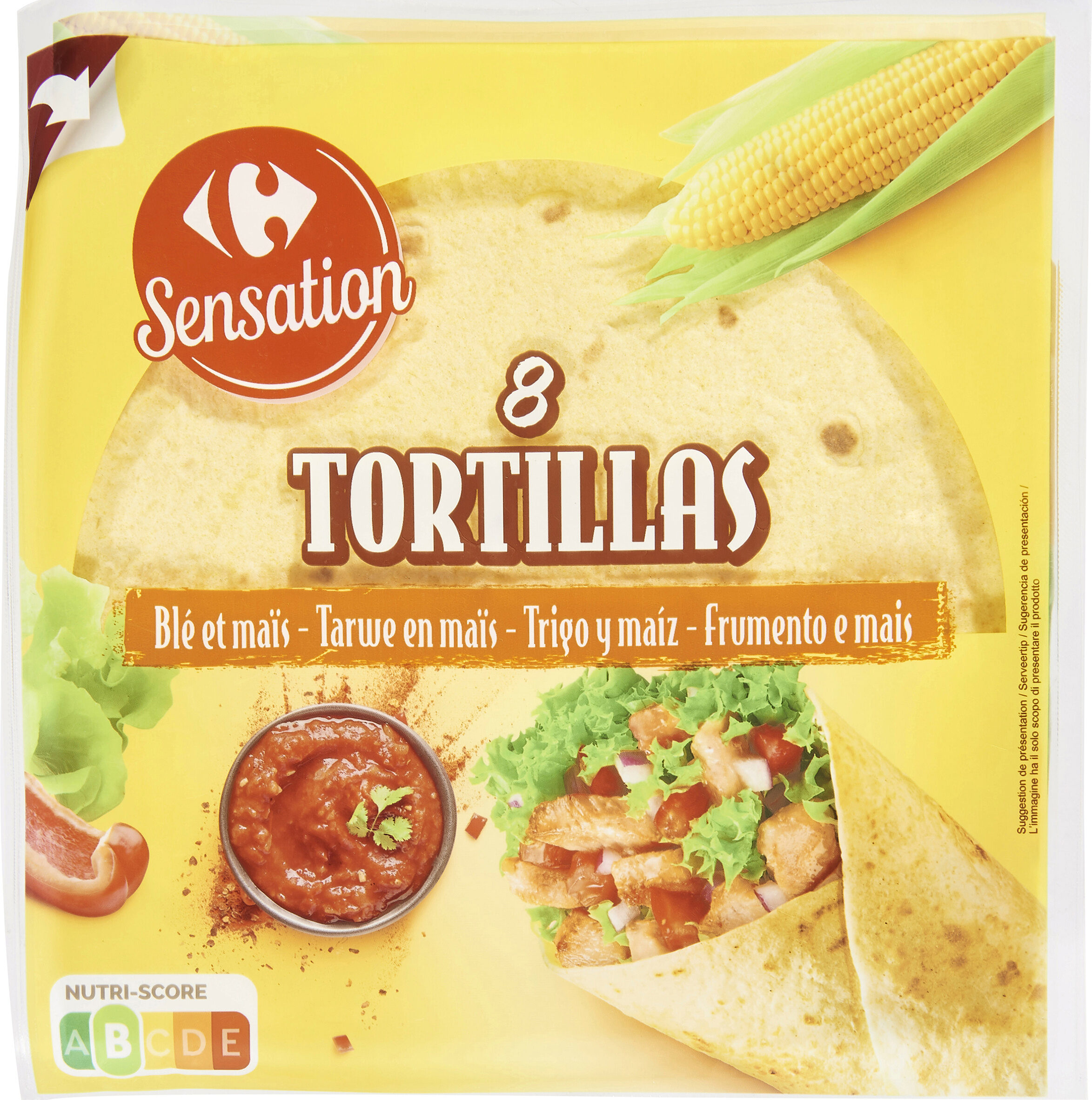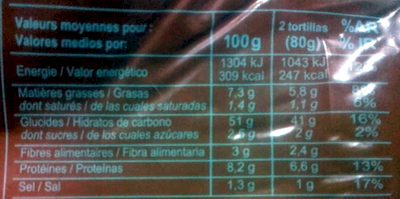8 TORTILLAS Blé et maïs - Carrefour - 320 g
This product page is not complete. You can help to complete it by editing it and adding more data from the photos we have, or by taking more photos using the app for Android or iPhone/iPad. Thank you!
×
Some of the data for this product has been provided directly by the manufacturer Carrefour.
Barcode: 3245413497901 (EAN / EAN-13)
Common name: Galettes de blé et de maïs à garnir.
Quantity: 320 g
Packaging: Plastic, Bag, Protective gas, fr:Point vert, fr:Sachet à jeter en France, fr:Sachet à recycler en Belgique
Brands: Carrefour
Categories: Plant-based foods and beverages, Plant-based foods, Cereals and potatoes, Cereals and their products, Breads, Flatbreads, White breads, Wheat breads, Wheat flatbreads, fr:Corn tortillas, fr:Tortillas
Labels, certifications, awards:
Green Dot, Made in Belgium, Nutriscore, Nutriscore Grade B
Manufacturing or processing places: Belgique
Traceability code: EMB 59350 - Lille (Nord, France), EMB B-02586
Stores: Carrefour
Matching with your preferences
Environment
Carbon footprint
Packaging
Transportation
Other information
Other information: Taste of Mexico* *Saveurs du Mexique Dégustez les saveurs du Mexique ! La tortillas de maïs, l'incontournable de la cuisine Tex-Mex ! Ces fines galettes de maïs sont l'équivalent du pain pour les mexicains. Elles peuvent se consommer froides ou chaudes, garnies de viande ou de poisson. Elles servent d'accompagnement ou entrent dans la composition de nombreuses recettes Tex-Mex (Fajitas, Burritos, Enchiladas ...). Blé & maïs
Preparation: À la poêle : Réchauffez dans une poêle huilée chaque tortilla légèrement humidifiée. Retournez-la au bout de quelques secondes. Au four à micro-ondes : Réchauffez les 8 tortillas légèrement humidifiées sous un film transparent, pendant 45 secondes (pour un four de 800 W).
Recipe idea: Idée recette : Fajitas au bœuf : Emincez l'oignon finement, coupez le poivron vert en lanières. Dorez à la poêle l'oignon puis le poivron pendant 2 minutes. Faites revenir à la poêle très rapidement les filets de bœuf puis les découper en fines lanières. Ajoutez-les au mélange poivron/oignon, puis salez, poivrez et dosez le piment. Découpez les tomates en petits dés. Pour chaque tortilla, étalez le guacamole, ajoutez la viande, les légumes et les tomates en dés. Roulez les tortillas et présentez-les avec de la salade verte.
Conservation conditions: À conserver à température ambiante. Après ouverture, à conserver au réfrigérateur dans l'emballage bien refermé, pendant 3 jours au maximum. Pour une dégustation optimale, à consommer de préférence avant le / N° de lot : voir sur le devant du paquet. Conditionné sous atmosphère protectrice.
Customer service: Interdis - TSA 91431 - 91343 MASSY Cedex - France
Report a problem
Data sources
Product added on by openfoodfacts-contributors
Last edit of product page on by thaialagata.
Product page also edited by aleene, alexcorioze, anonymousgeek, big-brother, carrefour, date-limite-app, ecoscore-impact-estimator, feat, kiliweb, mafzst, org-carrefour, roboto-app, segundo, sioul, teolemon, yuka.U2E0UlRQc3htNkl4cE1FYzgwaks1ZFpNMVp1R1kwU0hOYk1MSWc9PQ, yuka.VnZvNE9ad091ZGtob3ZZVnh4Zmxxb0ovNktHMFpVN3FldGN6SUE9PQ, yuka.WDdFOEZyVUd2L2NVdXMwdS9ERGF5dThzNlpPT1hHYUtOZlpBSUE9PQ, yuka.WllNbFFQazZyUG9yb3RnNTR3enEyZjhrOWNPUVYzTzZKTllWSWc9PQ, yuka.ZW9rdkZia2poOWdxdVBBbjR3blMxdEVzM1lDUVJUUG9JTUU0SVE9PQ.
Last check of product page on by aleene.










